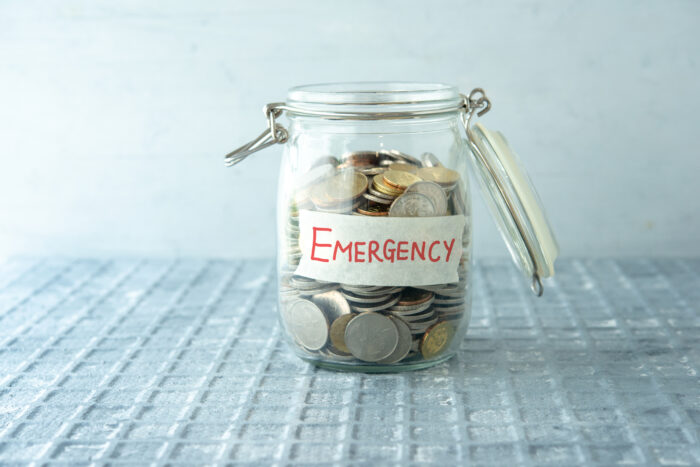
You may be surprised to know that you can’t necessarily tell much about a person’s net worth from their lifestyle. Someone who appears to live very extravagantly might have a negative net worth while another person who seems to be frugal might have a substantial fortune. Net worth is calculated by subtracting a person’s liabilities from their assets, so someone who lives above their means or who has a significant amount of debt might not have a very high net worth. Building your net worth is important for long-term financial security and independence, and the tips below can help you do that.

Money and You
The first thing to do before you can put any money saving tips into practice is think about your relationship with money. If you’re married, you should have this conversation with your spouse. If you share finances with a partner but you’re not married, you should also do this together. If you live together but don’t share finances, it’s still important to have this conversation because how each of you manages your individual finances affects the other person. Consider what your background is when it comes to finances.
How did your family approach it? Did they talk about it, or was it considered to be a topic that was taboo, shameful, or stressful? Were your parents savers, spenders or one of each? Did they teach you much about personal finance? What kind of baggage do you think they passed on to you when it comes to financial matters? What is your own attitude about money? Are you a spender, a saver, or a little bit of both? What do you like to spend on? Do you value things or experiences? How much do you need to have in the bank to feel secure? If these questions feel especially fraught, you could discuss them with the help of a counselor or life coach. Exploring your answers will help you better understand your motivations and your weaknesses.

Understand the Big Picture
The next step is to get a realistic picture of your finances. For some, this step will be an easy one; for others, it may be the most difficult of all. As with the discussion questions above, you can always work with a counselor or coach at this stage if you feel a lot of anxiety at the idea of opening bills, creating up a budget and figuring out exactly how much you owe. However, you’ll need to do all of these things in order to move to the next step. If you aren’t sure where your money is going each month, which is true of many people, an app that tracks your spending can help you determine that. This will form the basis of the budget you will create.
Look at how much you make annually, and break that down across 52 weeks. Your budget should account for all of your regular expenditures as well as those that happen irregularly, such as dry cleaning or buying birthday presents. Tracking your spending will also help you identify places where you are wasting money, but make sure that you don’t make a budget so bare bones that no one could stick to it. You are allowed to spend some money on things that you enjoy. You’ll also need to include money for debt, savings and investments. Add up the value of everything you own. Then, add up your debts, and subtract that amount from your assets to find out your net worth. How do you feel about the number that comes up? Even if it’s not as high as you’d like or it’s in the negative, there’s a lot you can do to change that.

A Plan to Pay Off Debt
First, you need a plan to pay off your debt. With the exception of your mortgage, this should be your first priority. There are a few reasons for this, but essentially, the longer you have a debt, the more you’re wasting on interest. Once you’ve paid off what you owe, you can apply that cash to savings and investing. Focus on one bill at a time, either the one with the highest interest rate or the smallest one.
The former approach is more financially savvy, but the latter approach can be psychologically motivating and help you stay on track. Pay the minimum on the other bills until the first one is paid off. Then take what you were paying on that and apply it along with the minimum to the next in line. You can also look at ways to reduce what you owe. You can often lower credit card interest rates by rolling your balance onto a lower-interest card. You may be able to refinance your student loan into a new loan if you go to this site, that offers a lower interest rate than your original loan or that offers lower monthly payments. The latter benefit might make it easier for you to fit those payments into your overall plan.

Emergency Savings
No matter how well you plan, unexpected expenses happen because life happens: home repairs, vet bills, car repairs, dental emergencies and so much more. Easily liquidated savings can help you absorb these emergencies without going further into debt. While paying off what you owe has to be your priority, it’s not a bad idea to try to get a few hundred dollars in your emergency account before you’ve cleared your total debt. Once you no longer owe money, you can start adding more to this account until you have at least three to six months of expenses.

Investing
Just as you should try to put $500 or so in your emergency savings account while you’re paying down debt, it’s generally a good idea to try to contribute to your retirement account during that period as well. This is particularly true if you’re in your 20s or 30s since that money is likely to be worth a great deal in a few decades. However, outside of putting money toward retirement, you should wait until you’re debt free and have some emergency savings before you start seriously investing. At that point, you can look into many different options, such as setting up an online brokerage or purchasing real estate.











